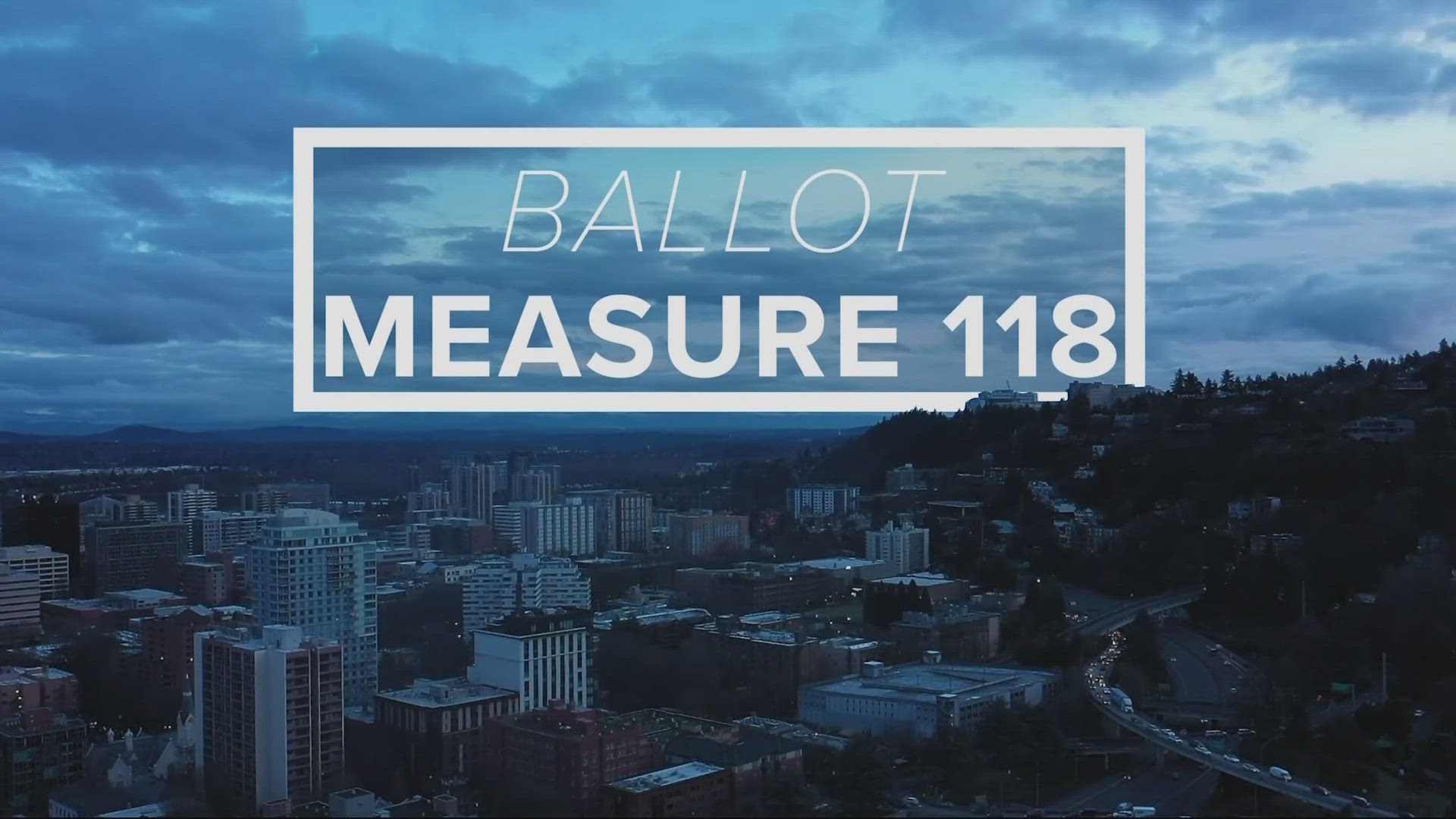PORTLAND, Ore. — A ballot measure that would tax the sales of large companies and spread the money among all Oregonians is being widely opposed by Oregon businesses, organizations and politicians from both sides of the aisle — while drawing support from Californians in the tech industry who advocate for universal basic income.
Measure 118 proposes a 3% tax on a corporation's sales in Oregon exceeding $25 million. State estimates say it would generate roughly $7 billion each year — enough to send about $1,600 to every Oregon resident, regardless of age.
"The $1,600 bucks isn't going to solve every problem you have, but it's certainly going to help," said Antonio Gisbert, a petitioner backing Measure 118, in a prior interview with KGW.
Gisbert said large corporations aren't paying their fair share in taxes and Oregonians could better use that money to invest in their communities.
"Then our economy is going to do better, particularly our main street, our local economies are going to flourish," Gisbert said.
However, opponents say Measure 118 is deeply flawed and it would devastate the state’s economy.
“Oregonians are smart, they know that free money is never free," said Angela Wilhelms, the chair of lobbying group Oregon Business & Industry, which opposes Measure 118.
State estimates project the ballot measure would significantly eat into Oregon's general fund budget — forcing cuts to areas like education, public safety, and health care — while adding to inflation.
“Consumers are going to have to pay for this massive tax, the largest tax increase in Oregon's history, and yeah, I think consumers understand that when you tax sales the natural result is higher prices," Wilhelms said.
As a result, an overwhelming number of Oregon organizations, companies, unions, workers and political leaders — Democrat and Republican alike — are opposing Measure 118.
"This coalition, united to defeat Measure 118, is like nothing I've ever seen in politics in Oregon before," Wilhelms said, referencing an extensive list of opponents asking for voters to reject the measure. "It's going to cost Oregonians a tremendous amount, damage the state’s economy, and as Governor Kotek said, punch a hole in the state budget."
With widespread opposition and previously favorable organizations pulling their endorsements, who's backing Measure 118?
Oregon campaign finance data shows that the biggest backers of Measure 118 are California residents who support basic universal income.
The largest supporter, Josh Jones, made his fortune in cryptocurrency. To date, Jones Holding LLC has donated more than $1 million to the Oregon Rebate PAC and Oregon People's Rebate PAC in support of Measure 118.
Jones posted a video on Reddit in the r/Oregon subreddit titled "I'm the main backer of Measure 118, AMA!" in which he explained his support.
"I just want everybody to have a nice base level of wealth, society functions better, it's more efficient, you don't need much government when everyone is wealthy and this seems like a very good way to do it." Jones said.
He added that he likes Oregon and his former college roommate lives in Lake Oswego.
"I've got no skin in the game, I put some money in, it's sort of an outside bet," Jones said in the video.
Another top donor is Gisele Huff and the Gerald Huff Fund for Humanity, which collectively has donated more than $100,000 to the PACs.
Gisele Huff is the mother of the late Gerald Huff, a former principal software engineer at Tesla who advocated for universal basic income.
Dylan Hirsch-Shell, a former Tesla engineer who is running for mayor of San Francisco on the platform of universal basic income, also donated $100,000 to the Oregon Rebate PAC.
In all, Measure 118 has become the hardest-fought ballot measure in the 2024 November election. Opponents, mostly though companies based in Oregon and other states, have spent about $12 million dollars attacking it.

